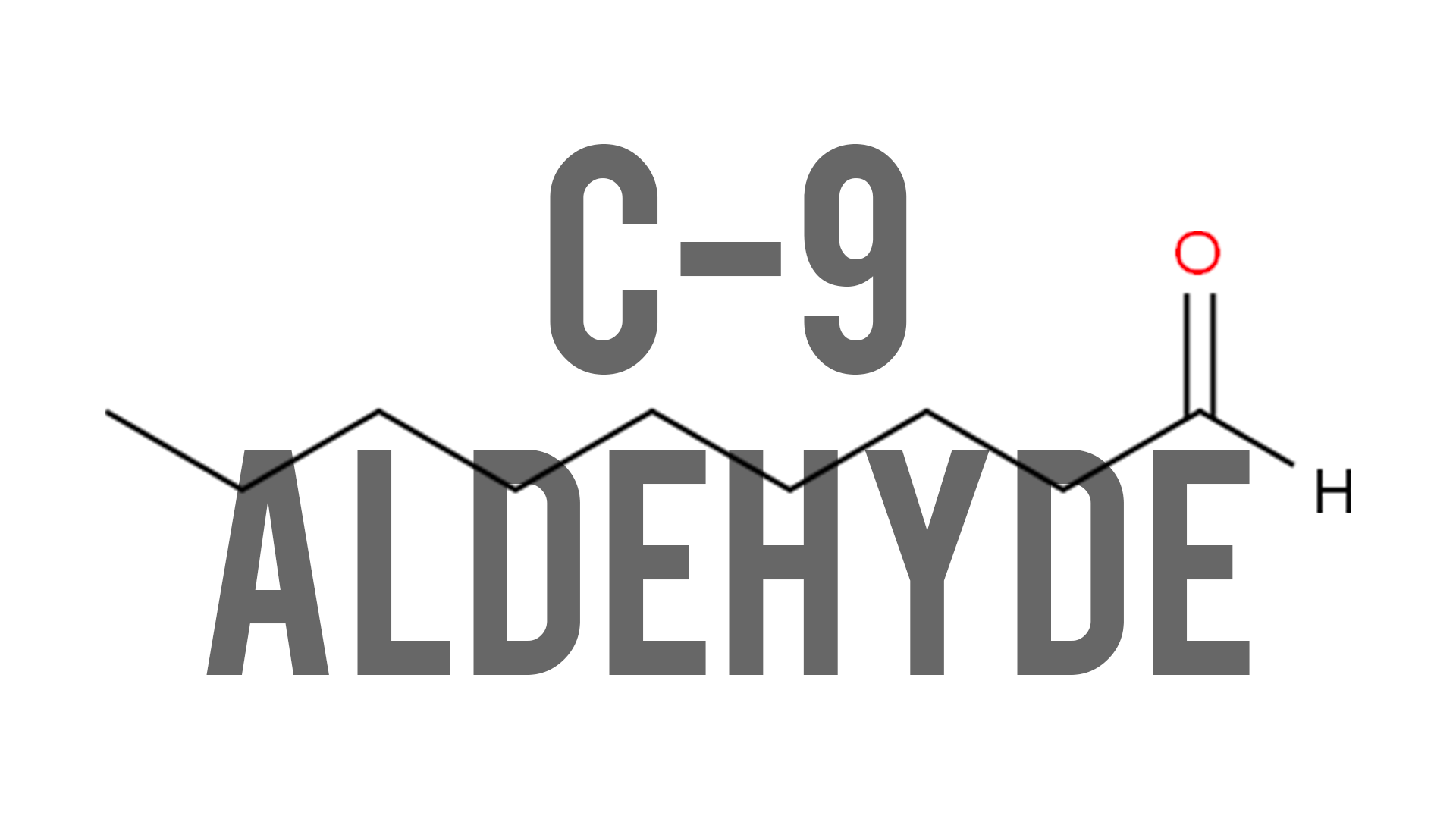Aldehyde C9
What is C-9 ALDEHYDE ?
Synthetic Ingredient For Perfumery Overview
Nonanal, also known as C9 aldehyde, is an organic substance that contains 9 carbon atoms. There is no precise information on exactly when nonanal was discovered, but this aldehyde was first described scientifically in the late 19th century, during the development of organic chemistry. It was likely discovered by one or more scientists who were exploring the chemistry of aldehydes and other organic substances.
A colorless, oily liquid, nonanal is an ingredient used in both Flavors and fragrances. Although it occurs in several natural oils, it is produced commercially by hydroformylation of 1-octene.
The taste of concentrations below 5 ppm is refreshing, citrusy, and waxy.
It often forms part of an "aldehydic base" which in turn may form part of a top note composition.
In flavor compositions, the aldehyde is used for imitation Citrus, particularly Lemon and Mandarin. Concentrations are very low, normally about 0.2 up to about 6 pm in the finished product.
Profile:
📂 CAS N° 124-19-6
⚖️ MW — 142.24 g/mol
📝Odor type — Aldehydic
📈 Odor Strength —Recommended smelling in a 10% solution or less.
👃🏼 Odor Profile — Very classic aldehydic smell, waxy, citrus-like, orange peel-like, and a cucumber fattiness. Slightly green. The more carbons in the chain, the more fattiness (or lactonic from 14+) will be perceived.·
⚗️ Uses — This aldehyde is widely used in perfume formulations, albeit in small amounts, usually less than 0.1%. It is found in Rose, Lily, Peony, Orris, Geranium, Citrus, Orange blossom, Jasmin, Tuberose, Opopanax, and many other fragrance types. The aldehyde imparts a natural "flower-wax" or "petal"-like note and provides a strong "lift" to the perfume.
Sources:
Fulvio Ciccolo — Scentspiracy, 2023
National Center for Biotechnology Information (2020). PubChem Compound Summary for CID 31289, Nonanal. Retrieved November 25, 2020 from https://pubchem.ncbi.nlm.nih.gov/compound/Nonanal.
